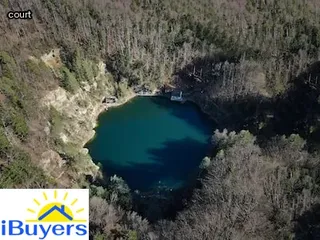Understanding probate laws in Indiana can be a daunting task. Probate is the court-supervised process of settling an estate, and it requires knowledge of both state and federal laws and regulations. In Indiana, probate is governed by the Indiana Code Title 29, Article
The main purpose of probate is to ensure that all assets are distributed according to the wishes of the deceased person's will or, if there was no will, under intestacy laws established by the state. In addition to distributing assets, probate also involves collecting debts owed to the estate, settling any disputes between heirs or creditors, and filing necessary tax returns. To open a probate case in Indiana you must file a petition with the local court and notify all heirs and other interested parties. In some instances, a personal representative may be appointed by the court to manage estate assets and liabilities during this process. As part of the probate process, real estate transactions must also be managed according to state law; this includes ensuring that property titles are properly transferred when applicable. It is important to understand all applicable laws before beginning the probate process so that mistakes can be avoided and an efficient transition of assets can occur.

In Indiana, the time frame for probating an estate can vary depending on the complexity of the estate and the number of beneficiaries involved. Generally, it takes between six months to two years from start to finish.
Initially, a petition must be filed with the court and notice provided to all interested parties. After that, all assets must be identified and appraised, creditors must be paid, and any remaining assets should be distributed in accordance with the will or state law.
The executor of the estate is responsible for carrying out all these tasks during the probate process. During this period there may be court hearings scheduled and paperwork filed with the court.
Once all tasks are complete and all required documents signed by beneficiaries and heirs, a final order from the court is issued; closing out the probate process.
Executors of estates in Indiana are typically entitled to receive compensation for their services, but the amount and timing of disbursement is subject to specific state law. Generally, when a decedent left a will, the executor appointed in the document should be paid for their services according to the terms of the will.
If there was no will or if the will does not mention executor compensation, then Indiana probate law provides that an executor can receive a reasonable fee based on what is customary in the area. The court has discretion to determine whether or not such compensation should be granted and how much should be paid.
In addition, an executor may also seek reimbursement for any out-of-pocket expenses related to administering the estate. When real estate transactions are involved, it is important to understand that an executor must obtain court approval before they can sell or transfer real property owned by the estate.
This applies even if there is no dispute over property rights or title; it's just part of the process for properly settling an estate in Indiana.

Probate in Indiana is a complex process that involves the validation of a person's will and the distribution of his or her assets. The cost associated with probate can vary greatly depending on the complexity of the estate and the laws in place in each county.
Generally, Indiana courts require an executor to pay certain fees related to filing documents, publishing notices, obtaining appraisals, paying creditors, and more. Additionally, court costs are typically due for things like filing fees and court reporter fees.
In some cases, executors may be responsible for paying attorney's fees as well. Other expenses such as travel costs or appraisal fees may also be applicable depending on individual circumstances.
It is important to keep in mind that the total cost of probate can change if property values increase or decrease during the course of proceedings. Therefore it is important to understand all applicable costs before initiating a probate process in Indiana.
In Indiana, probate proceedings are managed by the executor of an estate. The executor is generally appointed by the court to manage the estate proceedings and administer the decedent’s will.
Generally speaking, when a person dies in Indiana, their will has to go through probate before any real estate transactions can take place. This process includes identifying and inventorying all of the deceased’s assets, paying off creditors and taxes, notifying beneficiaries of their inheritance and distributing any remaining assets according to the terms of the will.
Any real estate transactions must also be approved by a judge as part of this process. The executor is responsible for filing all necessary documents with the court, including an inventory of all property belonging to the deceased individual, a petition for administration, a petition for determination of heirs or devisees and other legal documents required by Indiana law.
In some cases, an attorney may be needed to help complete this process.

In Indiana, probate is the legal process of distributing a deceased person's assets according to their will, if there is one. The court oversees all aspects of the probate process, including validating the will and determining who should receive assets.
During the probate process, wills are typically offered for public inspection before being filed with the court. To do this, a petition must be filed by an executor at the local courthouse, which begins the probate proceedings.
If there is a will involved in the estate, it must be verified by any heirs or beneficiaries as well as witnesses to make sure its authenticity is established. The executor then administers and distributes assets according to the terms of the will.
After all assets are distributed, a petition is submitted to close out the estate and finalize all transactions.
In Indiana, the probate process is designed to ensure that property and assets are legally transferred to their rightful heirs. The first step is determining if probate is necessary by taking inventory of all assets owned by the deceased person.
This includes any real estate, cars, bank accounts, stocks and bonds, life insurance policies, trusts, business interests and other personal possessions. If it is determined that probate is necessary, then the next step involves filing a petition with the court for appointment of an executor or administrator to handle the estate's affairs.
After the petition has been filed and approved by the court, then notices will be issued to creditors and beneficiaries so they can make claims against the estate or object to certain proposed distributions. The executor or administrator will then be responsible for gathering and valuing all assets of the estate including any real estate transactions that need to take place.
They must also pay off any debts of the deceased such as mortgages or liens on properties before distributing assets according to Indiana state law. Once all of these steps have been completed, then final distribution of assets can be made in accordance with applicable state laws governing inheritance rights in Indiana.

The probate process in Indiana involves filing a petition with the court to begin the process of distributing the deceased individual's assets. The timeline for filing this petition is regulated by state law, so it’s important to understand which deadlines need to be met after a death occurs.
Generally, if a will exists, it should be filed no more than six months after the date of death. Without a will, the estate must be opened within three months of the date of death.
If real estate transactions are involved, additional deadlines may apply that require certain forms and documents to be submitted within certain time frames; failure to meet these deadlines could result in delays or legal issues down the road. Filing for probate might also be necessary when someone dies without leaving a will; however, even when a will does exist, it’s still possible for an estate to go through probate.
It’s important to take into account all applicable rules and regulations when navigating probate laws in Indiana and dealing with any associated real estate transactions.
The Indiana probate process is conducted in court under the jurisdiction of the state. It takes place in the county courthouse where a decedent's assets are located, or in the county where the decedent was a resident.
The court proceedings begin with the filing of a petition to open an estate, which is followed by a notice to creditors and other interested parties. Once this is complete, the court will appoint an executor or administrator of the estate.
This individual will be responsible for inventorying and valuing all assets held by the decedent, notifying heirs and devisees of their inheritance, paying debts and taxes due from the estate, and distributing any remaining property according to the terms of a will or state law. Real estate transactions may also need to be completed during this time as part of settling an estate, so it is important for individuals to understand Indiana probate laws when it comes to these matters.

In Indiana, small estates can sometimes avoid the full probate process. While it's important to understand the laws and regulations surrounding estate planning, there are cases in which those with smaller estates can benefit from an alternative to going through full probate.
A simplified procedure is available for those who have a gross estate of less than $50,000, and if all heirs agree to it, this may be the best option for resolving real estate transactions in a timely and cost-effective manner. Depending on the size of the estate and other factors, there are different options available that may provide more efficient resolution of real estate transactions than going through full probate.
These alternatives include transferring assets via affidavit or transfer on death designation, as well as using beneficiary designations or revocable living trusts. It's important to consult a knowledgeable attorney who can inform you of all legal implications related to your specific situation so you can make informed decisions when considering alternatives to full probate in Indiana.
When it comes to understanding Indiana probate laws and real estate transactions, one of the primary considerations is how to avoid going through the entire probate process. Fortunately, there are some steps that can be taken to reduce or even bypass probate proceedings in Indiana.
For instance, if the total value of a deceased person's estate is below certain thresholds, then certain forms may be filed with the court in order to transfer ownership without having to go through a formal probate proceeding. Additionally, individuals may be able to transfer property without having to go through the probate process by setting up living trusts prior to their death, or by setting up joint ownership arrangements with a right of survivorship attached.
Furthermore, payable-on-death (POD) designations and transfer-on-death (TOD) designations can help simplify matters when transferring assets after someone passes away. Ultimately, understanding how these various methods work and how they may apply in different situations can go a long way towards helping individuals avoid having to navigate complex legal procedures associated with probate administration in Indiana.

In Indiana, the responsibility of overseeing the administration of a probated estate falls to the court-appointed personal representative, also known as an executor or administrator. This individual is responsible for managing the decedent’s assets, filing required paperwork and paying off creditors.
The personal representative has a fiduciary duty to gather all assets belonging to the decedent, pay off any debts and distribute remaining assets according to Indiana law. He or she must also file an inventory of the deceased person's estate with the court and provide notice to all interested parties including creditors, beneficiaries and heirs.
Additionally, the personal representative must pay taxes due on behalf of the decedent's estate and handle real estate transactions such as selling or transferring title to property. It is critical that all aspects of probating an estate in Indiana are handled properly in order to ensure that all legal requirements are met and that assets are distributed in accordance with state law.
When a decedent passes away in Indiana, understanding the probate laws and real estate transactions is essential for their estate. It is important to know how real estate factors into a probated estate in this state.
In Indiana, all of the assets owned by the deceased person at the time of death become part of their probate estate. This includes any real property, such as residential or commercial buildings, land, and vacation homes.
The executor of the will must determine the value of each asset and make sure it is properly distributed according to Indiana law. Real estate transactions involve many steps and require documentation such as deeds, title insurance policies, appraisals, surveys, mortgage documents, and more.
The executor will be responsible for ensuring that all documents are properly completed before transferring ownership of any real estate. Additionally, they must follow all applicable laws to ensure that everything is legally transferred from the deceased person's name to the new owner's name.
They may also need to obtain court approval if certain requirements are not met or if there are disputes among family members about certain assets in the probated estate. Knowing these details about how real estate factors into a probated estate in Indiana can help family members understand their legal rights when it comes to inheritance and distribution after someone passes away.

When an individual passes away, the administration of their estate through probate court in Indiana is governed by certain rules and regulations. It is important for those participating in the process to understand these laws so that the estate can be settled properly.
First, the executor or administrator of the will must file a petition with the court to start probate proceedings. The petition must include information about the deceased person’s assets and debts as well as details on who will receive any property.
If there are real estate transactions involved, additional paperwork may need to be completed to transfer ownership of properties. In addition, all heirs listed in the will must be notified of their inheritance rights and given a chance to contest the will if they choose.
These rules and regulations must also be followed when deciding how to distribute personal property among heirs or when settling disputes between them. Furthermore, any debts owed by the deceased person must be paid before their assets can be distributed, and taxes may need to be paid out from funds set aside for that purpose.
All these steps must take place during the administration of an Indiana estate through probate court for it to successfully close.
Executors administering an estate through the Indianapolis-Marion County District Court, Division 7 - Adult Guardianship & Adult Protective Services Division & Division 6 - Judicial Administration & Civil Pro Bono Program Office have a variety of resources available to them. The Indiana Probate Code provides rules and regulations for the administration of estates, while the Real Estate Transactions article outlines procedures for transferring property titles.
The Indianapolis-Marion County District Court also provides numerous helpful resources in their online library and services related to probate law and real estate transactions. These include informational pamphlets, forms, and court documents that can help executors understand Indiana probate laws as well as navigate real estate transactions.
Additionally, the district court offers free legal advice through its Civil Pro Bono Program Office with experienced attorneys who specialize in all aspects of probate law. Lastly, both divisions offer a variety of educational workshops and seminars throughout the year that provide valuable information about understanding Indiana probate laws and real estate transactions.

If someone disagrees with a decision made by an Indianapolis-Marion County District Court Judge concerning the administration of an estate, they can appeal the ruling to the court. The Division 7 - Adult Guardianship & Adult Protective Services Division and Division 6 - Judicial Administration & Civil Pro Bono Program Office are responsible for hearing and ruling on appeals related to probate law and real estate transactions in Indiana.
In order to appeal a decision made by a judge, one must provide their case’s relevant facts, evidence, and legal arguments that support their position directly to the appropriate division in writing. After submitting an appeal, it is up to the division to review all of the evidence presented before making a final decision.
All appeals should be filed as soon as possible after receiving notice of the decision from the court in order to ensure timely processing.
When contesting a claim filed against an estate being administered by the Indianapolis-Marion County District Court, Division 7 - Adult Guardianship & Adult Protective Services Division & Division 6 - Judicial Administration & Civil Pro Bono Program Office, it is important to know Indiana's probate laws and real estate transactions. The process of contesting a claim depends on the type of claim, such as will contests, creditor’s claims, and heirship disputes.
Will contests involve a formal challenge to the validity of a will based on various grounds. Creditor’s claims must be addressed within 30 days of the filing being submitted to the court or they are considered valid.
Heirship disputes occur when there is uncertainty regarding who should receive assets from the estate. It is also important to understand how real estate transactions are handled in Indiana probate courts.
Generally, beneficiaries named in the will may inherit title to real property if deeds are executed properly following court approval. Lastly, distributing assets from an estate is complex and often time consuming; therefore it is beneficial to seek out legal advice if you plan on contesting a claim filed against an estate in Indianapolis-Marion County District Court.

When dealing with a dispute regarding an estate being administered by The Indianapolis-Marion County District Court, Division 7 - Adult Guardianship & Adult Protective Services Division & Division 6 - Judicial Administration & Civil Pro Bono Program Office, it is important for family members or beneficiaries to understand Indiana probate laws and real estate transactions. Seeking advice from knowledgeable professionals is essential in ensuring that all parties involved are aware of their rights and obligations.
A local attorney who specializes in probate law can provide useful information about the legal process, as well as answer any questions that may arise. They can also assist with paperwork and filing deadlines, making sure everything is properly handled.
Additionally, a qualified real estate agent can provide valuable insight into the transaction process and help ensure it is completed efficiently. In addition to hiring a lawyer or real estate agent, family members or beneficiaries should consider enrolling in an educational course on understanding Indiana probate laws and real estate transactions.
This will ensure they have a comprehensive understanding of their rights and responsibilities when administering an estate through the Indianapolis-Marion County District Court.
Attorneys play a critical role when it comes to the administration of an estate through probate court in Indianapolis-Marion County District Court's Divisions 7 (Adult Guardianship & Adult Protective Services) and 6 (Judicial Administration & Civil Pro Bono Program Office). Attorneys help to advise executors or administrators of the estate, ensuring that they follow all applicable state laws regarding the distribution of assets, paying any necessary taxes or debts, and settling any disputes related to the estate.
They can also provide guidance on complex real estate transactions associated with an inheritance. Furthermore, attorneys can help ensure that probate proceedings are conducted properly, protecting beneficiaries from any potential legal issues that may arise during this process.
With their expertise in both Indiana probate laws and real estate transactions, attorneys are essential for providing comprehensive legal advice during the administration of an estate through probate court.

When applying for an Order of Summary Disposition for an uncontested Will in the State of Indiana, it is important to understand the probate laws and real estate transaction regulations that apply. A variety of legal documents are typically required when filing this application, including a petition for summary disposition, a certified copy of the decedent’s death certificate, a certified copy of the will or affidavit in lieu of will, and a statement from all interested parties certifying that no objections exist to the granting of the order.
In addition, those who wish to be appointed as executor must provide documentation showing their qualifications. Depending on the situation, additional evidence may also be necessary.
It is therefore important to contact an experienced attorney who can help determine which documents are needed and provide assistance with navigating Indiana's probate laws and real estate transactions.
In Indiana, real estate transactions must go through the probate process if it is part of an estate. However, there are some exceptions to this rule.
Generally speaking, if the decedent’s estate is valued under $50,000, then the real estate does not have to go through probate. The property can be transferred directly from the deceased person to their heirs without going through probate court.
Additionally, any real estate held in a trust does not have to go through probate in Indiana. It is important for individuals and families to understand the Indiana Probate Laws and Real Estate Transactions so that they can make informed decisions when dealing with such matters.

Probate laws in Indiana are designed to help simplify the process of transferring real estate when a person dies. In general, if a property owner is deceased and has no will, the surviving spouse has the right to inherit the property without going through probate.
However, if there is no surviving spouse or if the deceased had a will, then probate will be necessary to ensure that the property is legally transferred to its rightful heirs. To avoid probate on a house in Indiana, it is important to understand how these laws work and what options are available.
One way to avoid probate is by establishing an estate planning trust which holds title to your assets. This allows you to designate who inherits your property without having to go through probate court.
Additionally, some states allow for joint tenancy with right of survivorship, allowing two or more people to own a piece of real estate together and upon one person's death, their interest in the property passes directly to the other owner(s). Lastly, it may be possible for a homeowner in Indiana to transfer ownership of their home into a living trust prior to death, which can help avoid probate as well.
By utilizing these strategies and understanding Indiana probate laws and real estate transactions, you can help ensure that your house passes quickly and easily according to your wishes after death.
In Indiana, if an estate is worth more than $50,000, it must go through the probate process. Probate is a legal procedure that manages the distribution of a decedent’s assets after death.
Any estate valued at or above $50,000 must have the will officially filed in court and the assets divided according to the wishes of the deceased. This includes any real estate transactions that occur during the probate process.
Generally, this means that all assets owned at time of death are subject to probate. In addition, any real estate owned by a decedent must be inventoried and appraised as part of the probate process.
To determine how much an estate is worth for purposes of determining whether it needs to go through probate in Indiana, a full inventory and appraisal of all assets must be completed.
The process of probate in Indiana can take anywhere from several months to several years, depending on the size and complexity of the estate. The Indiana Probate Code requires that certain steps be taken in order for a deceased person's estate to be properly administered and distributed.
This includes filing petitions with the court, notifying heirs or beneficiaries, inventorying assets and debts, paying creditors, and distributing remaining assets. Depending on the size of the estate, as well as any inheritance tax liability, it may take some time for all these steps to be completed before all heirs are able to receive their inheritances.
Furthermore, if there is real property involved in an estate’s distribution, it may take additional time for title searches and real estate transactions to be completed. With so many factors influencing how long probate may take in Indiana, consulting a qualified attorney can help ensure that all legal requirements are met in a timely fashion.